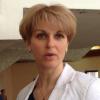References
- The anthropology of subjectivity and the world of modern communication. Мoscow, Russian Institute of Cultural Research. 2010. 384 p. (In Russ.)
- Bowen W. G. Higher Education in the Digital Age. Princetone, Princetone University Press. 192 p. (Russian Translation: Moscow: HSE Publishing House, 2018, 224 p. (In Russ.)
- Volkova, S. V. The Universe of Meanings in Education from the Perspective of Philosophical Anthropology. Doctor. Sci. Thesis (Philosophy)]. St. Petersburg, 2019. 300 p. (In Russ.)
- Dneprovskaya N. V., Shevtsova I. V. Prospects for University’s Open Educational Resources. Higher Education in Russia. 2019. Vol. 28. № 8–9. P. 110–118. (In Russ.)
- Donskikh O. A., Logunova L. Yu. Teacher and Pupil: Happiness of Interaction. Higher Education in Russia. 2019. Vol. 28. № 4. P. 60–71. (In Russ.)
- Kozhevnikova M. Hybrids and chimeras of man and animal: from mythology to biotechnology. Moscow, IFRAN, 2017. 151 p. (In Russ.)
- Kurmangulov A. A., Reshetnikova Yu. S., Bagirov R. N., Frolova O. I., Brynza N. S. «Factory of Processes» – A New Format of Educational Process Organization at Higher Education Institution. Higher Education in Russia. 2018. Vol. 27. № 5. P. 37–41. (In Russ.)
- Lipovetsky G. Hypermodern Times. The future of philosophy: professional and institutional aspects. Ed. by Kuzin, I. St. Petersburg, Russian Christian Academy of Humanities Publ., 2011. P. 248–289. (In Russ.)
- Luhmann N. Selbstlegitimation des Staates [Self-description]. Moscow, Logos Publ., 2009, 320 p. (In Russ.)
- Papakostas A. Civilizing the Public Sphere: Distrust, Trust and Corruption. Moscow, VTSIOM, 2016, 216 p. (In Russ.)
- Petruneva R. M., Vasilyeva V. D., Petruneva J. V. Digital Students: Myths and Reality. Higher Education in Russia. 2019. Vol. 28. № 11. P. 47–55. (In Russ.)
- Sagitov S. T. Social and Cultural Sphere and the Development of the Digital Economy. Higher Education in Russia. 2019. Vol. 28. № 10, P. 97–105. (In Russ.)
- Smirnova N. M., Demchenko L. M. (2011) Creativity as a process of creating meanings. Creativity: epistemological analysis. Мoscow, IF RAN Publ., pp. 91–112. (In Russ.)
- Sloterdijk P. Heinrichs G. Sun and death: Dialogical research. St. Petersburg, Ivan Limbach Publ., 2015, 600 p. (In Russ.)
- Sokolova N. L. Popular culture web 2.0: to cartography of the modern media landscape. Samara, Samara University Publ., 2009. 204 p. (In Russ.)
- Timofeeva O. History of animals. Moscow, New Literary Review Publ., 2017. 208 p. (In Russ.).
- Philosophy Education: Bulletin of the Association of Philosophy Faculties and Departments. 2011. Vol. 1 (2). St. Petersburg. 312 p. (In Russ.)
- Habermas J. The Structural Transformation of the Public Sphere: An Inquiry Into a Category of Bourgeois Society. Moscow, Ves’ Mir Publ., 2016. 344 p. (In Russ.)
- Athreya B. H., Mouza C. Thinking Skills for the Digital Generation [Electronic resource]. Springer International Publishing, 2017. 179 p. Electron. dan. DOI: 10.1007/978-3-319-12364-6 (date of access: 08.08.2020).
- Littlejohn A., Hood N. Reconceptualising learning in the digital age. The [Un]democratizing potential of MOOCs [Electronic resource]. Springer Singapore, 2018. 108 p. Electron. dan. DOI: 10.1007/978-981-10-8893-3 (date of access: 08.08.2020).
- Zawacki-Richter O., Qayyum A. The state of open and distance education [Electronic resource]. Open and distance education in Asia, Africa and the middle east. National perspectives in a digital age. Singapore, Springer, 2019. P. 125–140. Electron. dan. DOI: 10.1007/978-981-13-5787-9 (date of access: 08.08.2020).













